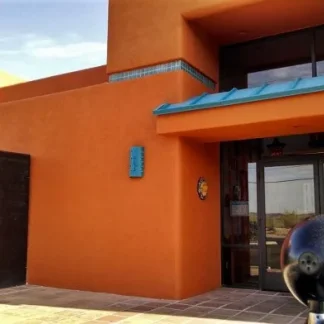Joan McNamara Center for New Directions
Joan McNamara Center for New Directions is a private rehab located in Tucson, Ar...
Behavioral Awareness Center Where we Change Lives Walk in's Welcome No Appointment Needed. We also accept the following: We Take Banner University Health Care & United Health Care Admistered Through The Arizona Health Care Cost Containment System AHCCCS TriCare, TriWest, Magellan, and coming in July Medicare and Medicade
Our Mission Statement BAC sees its mission as offering professional, quality, low-cost behavioral services consisting of counseling and treatment that holistically address the physical, mental, and spiritual healing of individuals and their families. We offer these services to individuals and their families and friends who reside in Tucson, Benson, Safford, Sierra Vista, and other surrounding communities in Arizona. BAC seeks to provide our clients with mental health, and supportive services needed to rebuild family harmony and enable them to regain useful employment in their communities. Counseling:
We administer these medications as prescribed by the physician. a. Liquid Methadone b. 10mg Methadone Tablets c. 40mg Methadone Diskets d. Suboxone We have a Certified Drug and Alcohol Counselor who provides individual and group counseling. Topics include, but are not limited to; Relapse Prevention, Post-Acute Withdrawal Syndrome, Warning Signs, Triggers, Communication, Time Management, Denial, Crisis Situations, Behavioral Health Issues, Family Roles, Family Systems, Co-Dependence, and more. A special emphasis is placed on involving family members as part of the recovery process but is not a requirement. Member American Society of Addiction Medicine
Contact us for more information: (520) 629-9126

Connect with Behavioral Awareness Center by calling their admissions team directly.
(520) 629-9126 Website Get DirectionsThe Joint Commission, formerly known as JCAHO, is a nonprofit organization that accredits rehab organizations and programs. Founded in 1951, the Joint Commision's mission is to improve the quality of patient care and demonstrating the quality of patient care.
Joint Commission Accreditation: Yes
The Substance Abuse and Mental Health Services Administration (SAMHSA) is a branch of the U.S. Department of Health and Human Services. Established in 1992 by congress, SAMHSA's mission is to reduce the impact of substance abuse and mental illness on American's communities.
SAMHSA Listed: Yes
Research clearly demonstrates that recovery is far more successful and sustainable when loved ones like family members participate in rehab and substance abuse treatment. Genetic factors may be at play when it comes to drug and alcohol addiction, as well as mental health issues. Family dynamics often play a critical role in addiction triggers, and if properly educated, family members can be a strong source of support when it comes to rehabilitation.
Group therapy is any therapeutic work that happens in a group (not one-on-one). There are a number of different group therapy modalities, including support groups, experiential therapy, psycho-education, and more. Group therapy involves treatment as well as processing interaction between group members.
In individual therapy, a patient meets one-on-one with a trained psychologist or counselor. Therapy is a pivotal part of effective substance abuse treatment, as it often covers root causes of addiction, including challenges faced by the patient in their social, family, and work/school life.
Group therapy is any therapeutic work that happens in a group (not one-on-one). There are a number of different group therapy modalities, including support groups, experiential therapy, psycho-education, and more. Group therapy involves treatment as well as processing interaction between group members.
In individual therapy, a patient meets one-on-one with a trained psychologist or counselor. Therapy is a pivotal part of effective substance abuse treatment, as it often covers root causes of addiction, including challenges faced by the patient in their social, family, and work/school life.
In individual therapy, a patient meets one-on-one with a trained psychologist or counselor. Therapy is a pivotal part of effective substance abuse treatment, as it often covers root causes of addiction, including challenges faced by the patient in their social, family, and work/school life.
Joan McNamara Center for New Directions is a private rehab located in Tucson, Ar...
Serenidad Counseling Services is a private rehab located in Tucson, Arizona. Ser...
Carondelet Health Network – St. Mary’s Hospital is a non-profit rehab located in...
Springboard Home for Girls, located in Tucson, Arizona, provides alcohol and dru...